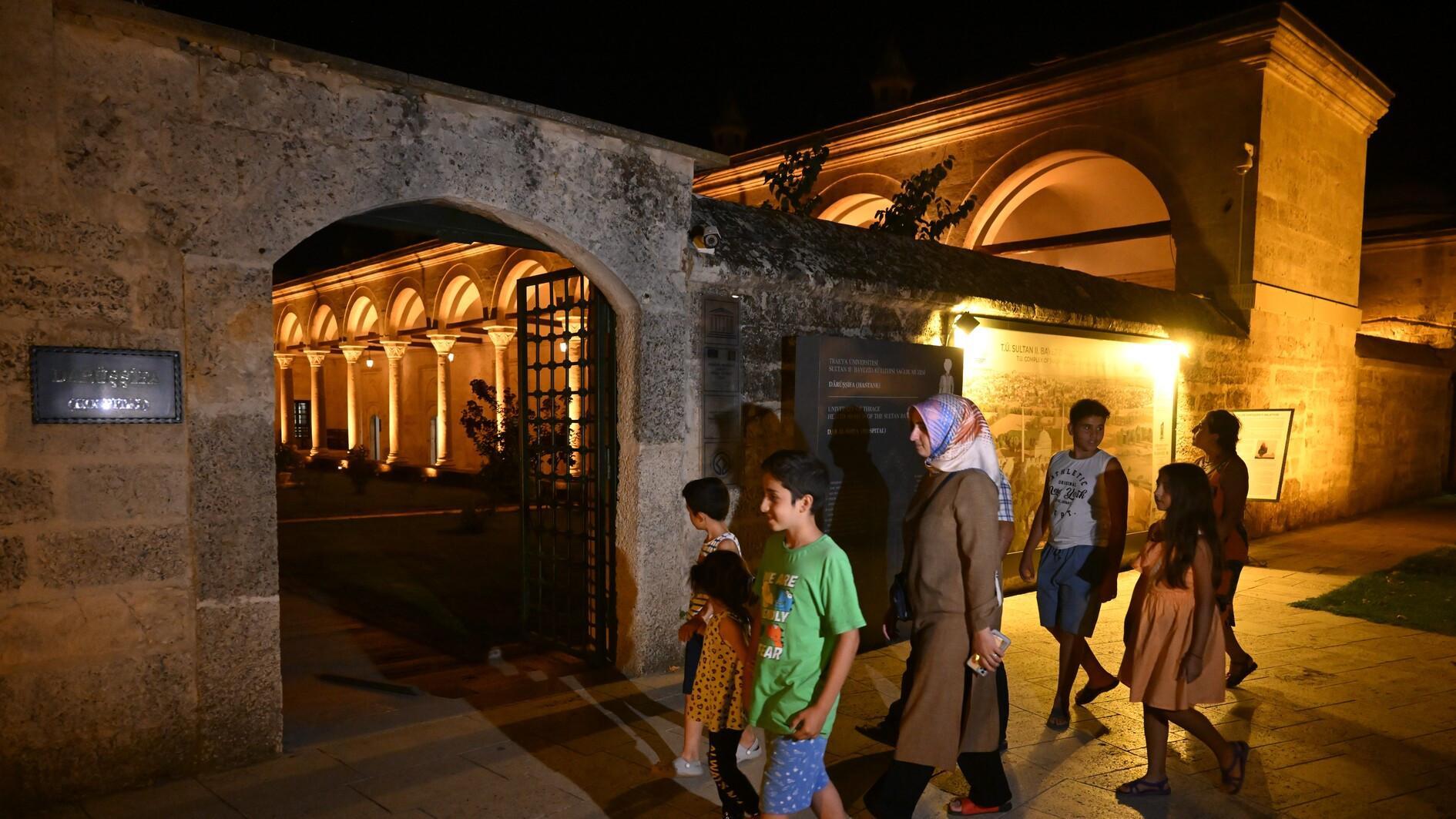
The Sultan Bayezid II Complex Health Museum, which displays Ottoman-era medical education and treatment methods, has begun welcoming visitors in the evenings as part of the “night museum” initiative.
Commissioned in 1488 by Sultan Bayezid II as a medical school, hospital and public kitchen, the complex today operates as the Health Museum under Trakya University (TU). Within the scope of the Culture and Tourism Ministry’s night museum project, the site is now open until 10:30 p.m. on Thursdays, Fridays and Saturdays.
Visitors are able to explore the museum in the cool evening air while its historic architecture is illuminated in a striking ambiance. Enver Şengül, the museum’s director, told the state-run Anadolu Agency that the Health Museum is among the most visited museums in Türkiye. He noted that after the Selimiye Mosque, it is the most frequented site in Edirne.
“This was one of the most important complexes of its time. The Health Museum covers the hospital (Darüşşifa), madrasa and imaret sections of the külliye,” Şengül said.
He emphasized that the museum’s night opening offers visitors a distinctive cultural experience. “We thought such an important and popular museum should remain open at night as well. With the ministry’s initiative and our university’s decision, we began this practice in June. The lighting creates a wonderful atmosphere. This is a museum with a story — in Ottoman times, patients with mental illnesses were treated here with water sounds, music and pleasant scents. We wanted people to witness these practices at night too. Visitors can now enjoy the museum until 10:30 p.m. on three nights a week. We invite both locals and tourists to experience this unique ambiance,” he said.
The foundation of the complex was laid in 1484 during Sultan Bayezid II’s Akkerman campaign, and it was completed in 1488. Serving as a medical school, hospital and imaret during the Ottoman period, the complex later focused solely on mental health treatments from the 1800s onward.
After falling into disuse following the Balkan Wars, the külliye was damaged but was later incorporated into Trakya University in 1978. A restoration process launched in 1986 revived the structure, which today houses the Health Museum.